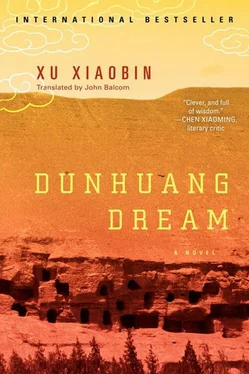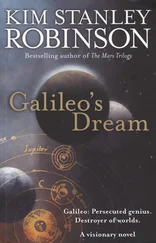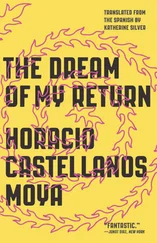Zhang Shu took a small bottle of wine from his shoulder bag. The bottle cost only eighty three fen and held only five or six cups, but the man received it like a treasure.
“It’s not that I won’t listen to reason,” said the old man swigging a mouthful. “What are you doing here? I wonder. You city folks are used to enjoying the good life. But you don’t stay in a good hotel, no, you insist on this place. .”
“Uncle, this is a Buddhist land of immortal caves. Why did Shakyamuni cast aside his princely rank and practice the difficult Way?”
The old man screwed his mouth into a crooked smile. “This girl’s got a good head on her shoulders. How long do you two plan to stay here?”
The old man had referred to them as “you two.” They both wanted to protest this inappropriate address, but for some reason, they didn’t bother to explain.
Zhang Shu told the old man that he had come here to collect folktales and that Xiao Xingxing had come in search of artistic inspiration.
“Collect folktales? Then why don’t you contact Chen Qing, the folktale expert in these parts?”
Zhang Shu said that he had heard of the famous Chen Qing, but figured someone so well known would be difficult to see. Hearing this, the old man laughed like a child.
“What? Chen Qing — that’s me! I am Chen Qing!” he exclaimed.
11
That night was the first time Chen Qing told them a story.
Legend has it that in ancient times there were no caves here. There was a river that swelled in spring, on the desolate banks of which grew tamarisk, parasol trees, and sacsaouls.
Later, a monk by the name of Le Zun came from the east, accompanied by three disciples. They were headed west to worship the Buddha, acquire sutras, and search for paradise. At the time, it was the height of summer and scorching hot. Their thirst was unbearable, so Zhi Qin, the third disciple, went in search of water. The sun was about to fall behind the mountains and shone on Sanwei Mountain, forming a myriad golden rays, in the midst of which sat a huge Miatreya Buddha, surrounded by millions of bodhisattvas with their myriad appearances, smiling as they conversed freely amid magnificent buildings in a purplish atmosphere. There were also countless fairy maidens playing musical instruments and dancing.
Looking at the scene, Zhi Qin was stupefied. He decided then and there to paint the spectacular scene and sculpt the Buddha and bodhisattvas. And so he took up hammer and chisel and began carving out the first cave. .
But why is it written on the stele that Le Zun carved out the first cave? Legend has it that Zhi Qin had the merit of digging the first cave and his master held him in high esteem. His fellow disciples, being jealous of him, wrote that Le Zun was the first to see the light. .
Whoever sees the Buddha’s light on Sanwei Mountain is destined to become an illustrious person.
12
Someone says I have an illustrious physiognomy,” said Zhang Shu.
“Who said that?”
“Dayejisi, the abbot of Sanwei Mountain Temple.”
“Him? You saw him? What else did he say?” For some reason Chen Qing seemed frightened.
“He said that although I have an illustrious visage, I will suffer a disaster shortly and that it’s not good to be away from home for very long. He encouraged me to leave soon.”
“He’ll let you go? Then you had better go, leave, leave.”
To Zhang Shu, Chen Qing seemed to have aged at once. Xiao Xingxing was snoring regularly nearby.
“Why? Does he have a lot of power around here?”
Chen Qing took one last swig of wine and said, “Young man, don’t ask so many questions. Do whatever he told you to do. Don’t make trouble for yourself.”
“Does one fear ghosts in the realm of the Buddha? All the more so when there are no ghosts.”
“Young man, you are raving! I have been here for decades, and would know if there are ghosts or not!”
“Is Dayejisi a Yugur?”
“Yugur! He’s Han Chinese! His wife is Yugur! If he tells you to go, you’d better go; do whatever he told you to do. .” The old man was long-winded. He stood up. At that moment the first light of dawn shone through the thin curtains. Zhang Shu pulled back the curtains. All he could see was the golden light on Sanwei Mountain and cloud upon cloud. The solemnity infused with a profound light made an unusual impression. The lower clouds were covered with light and shadow. It was as if a will composed of bright music was controlling dark and shifting passions.
“Hurry Xingxing! Look at the Buddha’s light on Sanwei Mountain.”
Unfortunately, Xingxing was still sound asleep and didn’t see it.
13
The following day, Xiao Xingxing, who was determined to have Zhang Shu accompany her to Cave 73 to see what, if anything, remained of the fresco Lakshmi Bathing , knocked on his door, waking the soundly sleeping Zhang. There was nothing he could do but take her on his old creaking bike.
Xiao Xingxing sat on the back. As he got on his bike, he had a strange feeling. The previous night, Xingxing had slept, nestled against his shoulder like a timid and lovable little woman. There was an angel’s purity about her face. She wasn’t a woman, but a girl. He thought that there were women who would never grow up. A soft warm breeze blew across her face, making it itch. Her hair was lifted on the wind like willow catkins fluttering over his nose. He remained absolutely still lest he startle her like a small bird. Cave 73 was closed. They stood in front of the door for a long time. Few people remained in the area. A woman wearing a gray head scarf walked alone slowly. She was dressed in a long, black high-collared gown with a gray vest. Colorful embroidery highlighted the collar, sleeves, and front of her garment, but it wasn’t all that pretty because her clothes looked dirty. Clearly she was a minority woman, but they couldn’t tell from which ethnic group.
Afterward they decided to visit the Great Southern Buddha and the Great Northern Buddha.
14
I admit there is one mistake that Zhang Shu helped me rectify.
It was with regard to an issue concerning the image of Maitreya. Like most people I believed that Maitreya was that fat, smiling monk, which was a mistake.
It turned out that the robust fellow was called the “bag monk,” who, according to The General Historical Record of the Buddha and other sources, was called Xie Bi and also known as Changtingzi, a monk from the Five Dynasties. Legend has it that he was fat and often carried a cloth bag when he went begging and was also good at foretelling good and bad luck and when it would rain or be clear. Before he died, he recited a gatha: “Maitreya, the real Maitreya divided himself into billions; he often manifests himself to people, but people don’t recognize him.” From then on, people assumed he was the incarnation of Maitreya. But in fact, he was just one of billions.
But the real Maitreya, or Mi Le in Chinese, who was named Ajita, was born into a Brahmin household and later became a disciple of the Shakyamuni. He died before Shakyamuni and was reborn in the Tusita Heaven. Billions of years after Shakyamuni passed away, 5,670,000,000 years to be exact, Maitreya will be reborn in the world of men and became a Buddha under a dragon-flower tree in the Hualin Garden. He will teach and save countless beings, carrying forward Shakyamuni’s Way by becoming the Buddhist Messiah.
The Dunhuang sculpture of Maitreya, which is thirty-three meters in height, was produced during the second year of the Yanzai reign period when Empress Wu Zetian ruled. Its face is calm, dignified, and beautiful. It is said that originally there was a priceless ruby inlayed above his nose between his eyebrows. The sculpture was the spitting image of Wu Zetian herself.
Читать дальше







![Theresa Cheung - The Dream Dictionary from A to Z [Revised edition] - The Ultimate A–Z to Interpret the Secrets of Your Dreams](/books/692092/theresa-cheung-the-dream-dictionary-from-a-to-z-r-thumb.webp)




